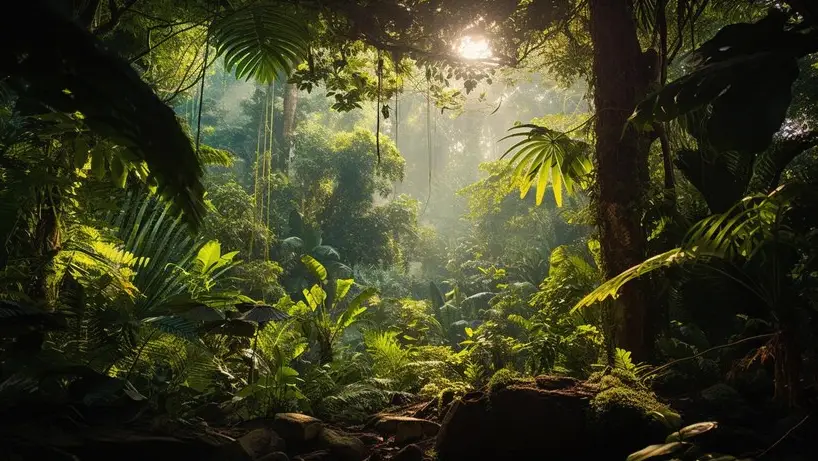It’s increasingly evident that the ‘environmental crisis’ encompasses species extinctions and climate change, but also includes the erosion of cultural diversity, the loss of personal and societal experiences with nature, and the unequal distribution of contamination and environmental degradation among social groups. Reflected in the Sustainable Development Goals and the Kunming-Montreal Global Biodiversity Framework, it’s even possible to affirm an international consensus has been constructed that we face a ‘values crisis’, which carries with it the challenge of recuperating a more holistic meaning of the ‘life’ we want to conserve.
The construction of a new paradigm
Beginning in the 1980s, conservation was guided by the concept of ‘biodiversity’, a term coined by USA biologists to express the ‘diversity of life’. This idea constituted an innovation in its time, expanding conservation’s focus beyond more charismatic species, for being either showy or large, and including genetic variability, trophic interactions, and ecosystem heterogeneity. Yet, it maintained an approach based in large part on intrinsic value (e.g., nature’s importance for itself), and biophysical measures (e.g., number of species, hectares of habitat). Then, in the 1990s, ecological economics emerged together with the ‘ecosystem services’ concept, highlighting nature’s monetary and utilitarian value (e.g., means to a human end).
However, treating conservation exclusively from ecological or economic perspectives can cause injustice towards Indigenous peoples and local communities. Given inequitable access and distribution of nature’s contributions to people, these social groups have often suffered environmental policies as colonial impositions. Furthermore, it is well documented that excluding people from decisions harms their implementation in practical management instruments.
Since the 2000s, different initiatives have promoted more plural approaches. In particular, the Intergovernmental Platform on Biodiversity and Ecosystem Services (IPBES, www.ipbes.net ) has advanced in this line, even challenging the validity of the terms in its own name. With academic and political input from the Global South, particularly Latin America, IPBES recognizes that ‘biodiversity’, ‘nature’ and ‘ecosystem services’ are rooted in Western culture. For example, ‘nature’, in its common usage is associated with the material world, including plants, animals, and processes, where humans have not intervened.
In stark contrast, ethnoecological studies demonstrate that for most of the 1,000 languages still spoken in the Americas, there is no distinction between that which is natural and that which is social, instead conceiving one sphere of interconnected ‘life’, as evidenced by Venezuelan Egleé Zent’s work together with the Jotï who inhabit the Amazon. The Andean cosmovision is another example with its conceptualization of ‘Pachamama’, based on a different relationship and is not merely another word for ‘nature’, rather understanding it as an individual, which implies different responsibilities like with one’s mother. In this sense, IPBES also has broadened the concept of ‘ecosystems goods and services’, with its strong economic and utilitarian connotations, and coined ‘nature’s contributions to people’ (NCP) to be more amenable of other worldviews, knowledge systems, cultures, and languages with a more relational and contextual perspective.
What aspects are still lacking?
Despite these advances, work remains to institutionalize plural valuations of nature, with their ecological, monetary, sociocultural, and health aspects. Historically, conservation debates were predominantly academic and in the Global North, but the implications were always seen worldwide in environmental policies. Today, more inclusive conservation incorporates ideas with a seal ‘from the South’. For example, the Kunming-Montreal Global Biodiversity Framework does not only seek to conserve 30% of the planet’s surface area by 2030 (known as the 30×30 Target), but this must be achieved with equitable governance systems that recognize the multiple values and worldviews regarding nature. Now, we are confronted with the challenge of implementing this paradigm shift, and COP16, which is being held from 21 October to 1 November in Cali, Colombia, is precisely where a new monitoring system is being negotiated for National Biodiversity Strategies and Action Plans (NBSAPs) to meaningfully institutionalize inclusive conservation.
Latin America’s role
In these processes, Latin America stands out with a privileged role. It has vanguard thinkers opening conceptual spaces that permit diverse voices, or what Colombian Arturo Escobar calls the ‘pluriverse’, in contrast to Western perspectives of assuming only one way of thinking-making the ‘universe’. Furthermore, the region has nourished grassroots socio-political processes related to Indigenous, peasant, and Afro-descendent initiatives, whose leaders have gone on to achieve high positions in the governments of countries like Colombia and Brazil.
Plus, from Latin America, we see the effect of the ‘Pope from the South’ leading the Catholic Church, who proposed a different relationship with nature in the Laudato Si, or via the first Latin American environmental treaty, called the Escazú Agreement that assures access to information, participation, and justice in environmental issues and represents a relevant example for the rest of the world.
Notwithstanding the above, it is worth remembering as well that despite the region’s potential in co-constructing this new paradigm, Latin America continues to be the most dangerous continent for environmental defenders, with 85% of the murders at the global level, according to the 2023 report from Global Witness. This ongoing tragedy demonstrates that despite its leadership in socio-environmental topics, there is still much to do to materialize the recuperation of the meaning of ‘life’ in all territories.
Fortunately, though, there are ample allies, and we find complementary ways of life in regions as diverse as Japan where the concept of satoyama refers to integrated cultural-ecological landscapes, sub-Saharan Africa where ubuntu relates the individual to other and the physical surroundings, or New Zealand where a new political definition of national well-being has been developed that incorporates the Māori worldview guided by the principles of kotahitanga (work in a coordinated way), tikanga (make decisions aligned with correct values), manaakitanga (increase the power and agency of others via respect and care) and tiakitanga (stewardship). It would seem that the search for ‘living well’ has similar manifestations around the world.
Conclusion
At the end of his speech before the Río+20 Summit, then Uruguayan president José ‘Pepe’ Mujica affirmed that “when we fight for the environment, we have to remember that the first element of the environment is called human happiness”. He then went on to cite Roman, Greek, and Aymara philosophers. This discourse evidences Latin America’s potential to rethink conservation. The region should now take advantage of this opportunity to integrate biological and cultural diversity and combine ancestral and Western worldviews.
A new paradigm based on equity, diversity, inclusion, and justice for conservation’s multiple voices will allow us to reconsider what is ‘living well’. In this way, we will be better prepared to attend the extinction of species and the erosion of nature’s contributions to people, and also confront the loss of experiences with nature and the threat to cultural diversity. Taken together, this ‘values crisis’ requires recuperating a more holistic meaning of ‘life’.
*Text produced jointly with the Inter-American Research Institute on Global Changes (IAI). The opinions expressed in this publication are those of two authors and not necessarily of their organizations.













